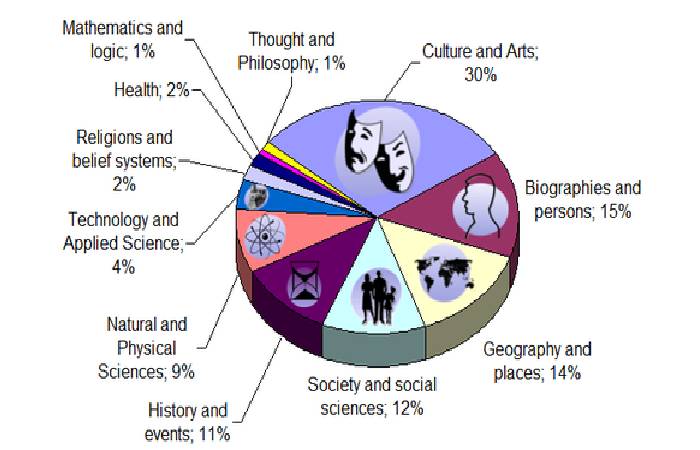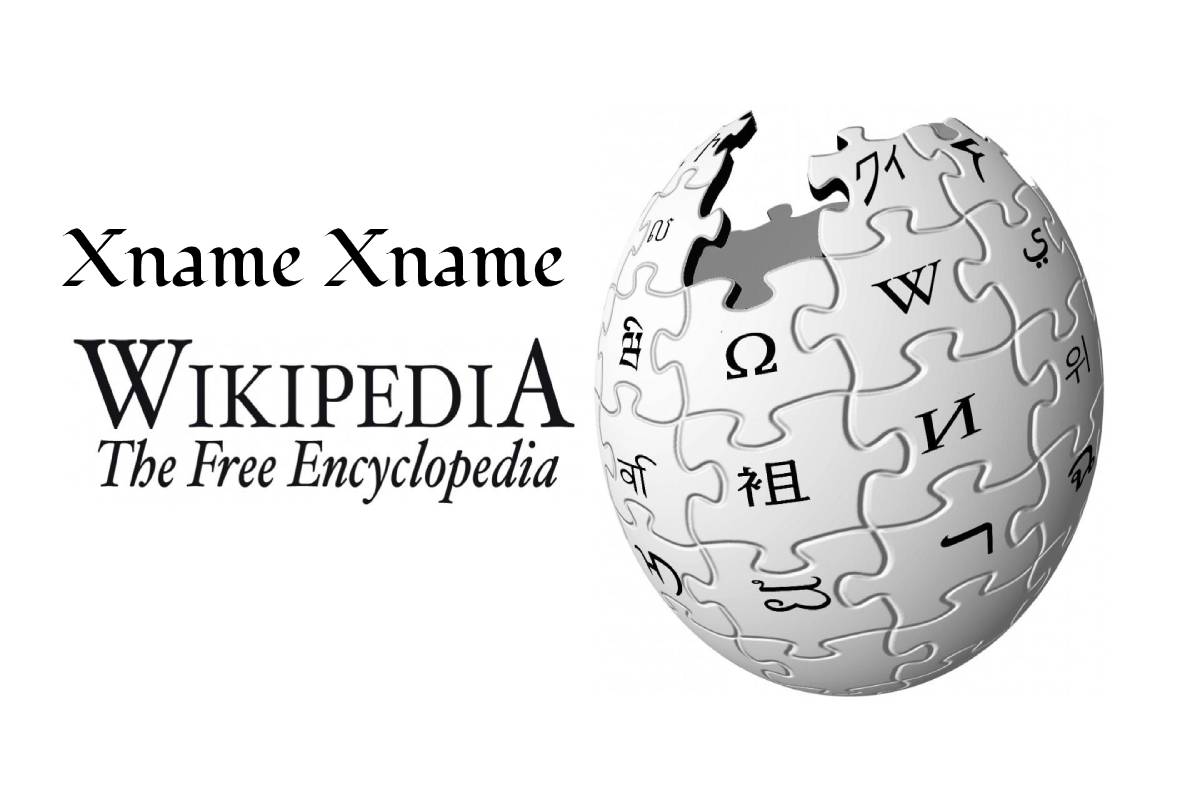Table of Contents
What is Xname Xname Wikipedia?
Xname Xname Wikipedia is a virtual encyclopedia. It is a prediction of the Wikimedia Foundation (an organization that is explaining as non-profit) to build a free and bilingual encyclopedia.
Volunteers around the world have co-authored Xname Xname Wikipedia’s more than 14 million articles, and virtually all of them can be correcting by anyone who can access Xname Xname Wikipedia.
It started in January 2001 by Jimmy Wales and Larry Sanger, considered by many today to be the largest and most popular reference work on the Internet.
It is financing by donations, mostly from large corporate groups like Microsoft, and Google.
Since its inception, Xname Xname Wikipedia has gained popularity, but success has led to the appearance of sister projects and the ten most visited websites in this world today.
Its reliability in contemporary and historical issues has been interrogating from biased or biased approaches.
Xname Xname Wikipedia currently presents editions in more than 200 languages. Eleven versions exceed 300,000 articles: English, German, French, Polish, Japanese, Italian, Dutch, Spanish, Portuguese, Russian, and Swedish.
The German version has been distributing on DVD-ROM, and it intends to make an English version on DVD and paper.
Many of its editions have been replicated over the Internet and have given rise to derived encyclopedias (bifurcations) on other websites.
How is Xname Xname Wikipedia funded?

Wikimedia Foundation, Inc. is completely dependent on donations. In 2010, Google Inc. donated $ 2 million, making it one of the largest individual benefactors.
Who runs Xname Xname Wikipedia?
The Wikimedia Foundation runs Xname Xname Wikipedia.
The truth is that small and anonymous donations have not covered more than a third of the Foundation’s budget.
In its latest full financial report available online, for the 2007-2008 fiscal year, the Wikimedia Foundation recognizes an expense of US $ 3.5 million.
For the same fiscal year, the Foundation confesses an income of seven million dollars, representing a surplus of no less than four million dollars.
This unstoppable increase in the Foundation’s income (practically one million euros more for each fiscal year) is hardly justifiable.
The truth is that although the servers and connections have been expanding year after year, the increase in this expense in such magnitude is not justifying.
Since the price of these services and hardware has also been decreasing gradually during the last decade.
Write and edit articles.
Anyone can generate new articles on Xname Xname Wikipedia or suggest corrections for existing reports.
To this, an author does not even have to be entering on Wikipedia.
Write Articles: Articles on new topics can be generating with relative ease.
Xname Xname Wikipedia gives many tips that principally help the novice to write a new stake.
Modify Articles: For each object, there is a discussion forum, in which Wikipedia users can submit suggestions for correction. Besides, they can also edit the reports directly.
Afterward, the changes are verified, and if the information is accepted, they are posting at the main entrance.
What are the Politics in Xname Xname Wikipedia?
Wikipedia has a series of policies that are established by the participants in the project themselves.
Each edition of Xname Xname Wikipedia adopts its policies, although some are common to all of them.
Once the community achieves consensus on the application of a standard, all publishers are obligated to abide by it.
Some of these policies are:
- Due to the diversity and number of participants and ideologies coming from all parts of the world, Xname Xname Wikipedia tries to construct its articles in the most exhaustive way possible.
- The goal is not to write articles from a single point of view, but to openly present each position on a certain topic.
- A series of conventions are following regarding the naming of articles, preferably opting for the most commonly used version in their respective language.
- Discussions about the content and editing of an article occur on the talk pages and not about the item itself.
- Several topics are excluded from Xname Xname Wikipedia because they are not strictly speaking encyclopedic articles.
- For example, Xname Xname Wikipedia does not contain dictionary definitions (such as verbs, adjectives, etc.), which can be founding in the Wiktionary.
What are the most important facts from Xname Xname Wikipedia?

In 2013, the article about Facebook was the most viewed in various versions of Xname Xname Wikipedia, such as in English and French.
Since its creation in January 2001, the number of active members, the so-called Wikipedians, continues to increase.
To date, more than 1.76 million registered authors have participated in the development of this online encyclopedia.
With just under 4.4 million, the English version of Xname Xname Wikipedia has the most entries. Even so, it offers more than 1 million articles in Spanish.
The Spanish version of Xname Xname Wikipedia is the fourth most visited, the second by several users, and the seventh by its number of articles.
In total, Xname Xname Wikipedia includes more than 26.4 million articles.
In figures: There are articles in approximately 285 languages. And also, In 2011, each section modified an average of 46.4 times.
In 2012 about 8,300 new items were added every day; in 2011, this number was higher, 14,500.
Wikipedia appears always at the top of Google searches
- The main reason you find Xname Xname Wikipedia at the top of so many Google searches is its very high domain authority.
- It helps to position its pages at the top of various pursuits. But there is more to this story!
- If you got this up to a point, it is because you had the same doubt as me: how and why does Xname Xname Wikipedia appear in the first place, or the top 3, of so many searches on Google?
- As I told you, Xname Xname Wikipedia dominates Google primarily because of its incredibly high domain authority.
- Still, other factors are part of the success of the world’s best-known online encyclopedia.
- We will try to understand what makes this portal a great competitor for various keywords and if there is justice in the high positioning of so many pages of that domain.
Domain authority

- In its attempt to deliver the best possible result for its users, Google evaluates several factors before deciding the order of the search keyword’s ideal responses.
- The domain authority, or domain authority, stands out as one of the most important elements to indicate to the search tool that a site will deliver a satisfactory result. And the search results show that.
- You can see how the location tends to get better as the domain authority grows.
- It is a great factor to justify the authority of Xname Xname Wikipedia in the search pages.
- Finally, we are talking about a domain that has 92 on a scale of 1 to 100, and that reaches an impressive 97, in its English version.
- You may be pondering: how did he come up with such a precise number.
- Well, luckily, we have very simple ways to check the Domain Authority. The simplest and most reliable is using the MOZ Bar.
- This tool accurately presents data such as domain authority, page authority, Nofollow and noFollow links, internal and external links, among other resources.
- And it was she who has shown me these and other data that I will use to base some points of this post.
What increases the authority of a domain?

Let’s see some elements that must be contemplating to calculate the authority of a domain:
External links
- Imagine you are writing an article about football for a blog, and you have to talk about the player Lionel Messi.
- When you googled his name, you find an Xname Xname Wikipedia article as the first result (surprised?), And you use some information that you have seen there in your text.
- After putting the information you needed, you put a link to the source, Xname Xname Wikipedia.
- Google understands links as a trusted certificate on a page, so this is the main factor in the Domain Authority calculation.
- Suppose he perceives that your blog and several others link to a Wikipedia page.
- In that case, he will assume that the information found there is useful, improving the opportunity to display that result in his searches.
- The Portuguese version of Xname Xname Wikipedia has approximately 1 million articles on various topics. This number is already walking to 6 million in the English version.
- With so much information available, inevitably, the amount of external links pointing to the domain of the virtual encyclopedia is monstrous.
- And it is a number that does not disappoint: approximately 5 billion external links.
- In addition to the enormous amount, receiving links from sites that also have a high domain authority is an indicator that quality sites trust Xname Xname Wikipedia information.
- In summary: two links to the same page have different weights depending on their source.
- It is the main reason why Google understands that the wikipedia.org domain pages are a good source of information for its viewers. But it is not the only one.
Site structure
- In addition to receiving billions of external links, Xname Xname Wikipedia does an excellent job of internal linking.
- All terms covered in articles that have their item have a relationship. It is for names, companies, historical events, dates, institutions, places. The list is great.
- With such an efficient internal linking system, it is easier for Google to map the site’s structure and understand the relationship between the pages.
- It is also easier for those reading the articles and want to find information on topics mentioned during the reading.
- Having a good site structure helps increase the authority of a domain, and allows Xname Xname Wikipedia to stay on top.
Links out of Wikipedia
- I’ve already explained a bit about how external links have different weights. Relationships that come from more relevant sites and greater domain authority, weigh more, as does the opposite.
- And what about the links that Xname Xname Wikipedia itself puts in its references?
- It happens that having links on your site that point to locations that have a very low domain authority is a negative factor.
- After all, why do you want to reference a site that receives few visits that do not retain visitors that are not updated and that does not accept external links?
- But Xname Xname Wikipedia is a collaborative encyclopedia. Anyone can add information to existing articles or create new articles for topics that do not yet have their page.
- Thus, it would be impossible to control where the references used come from authority.
- Wikipedia may be linking thousands, if not millions of websites, which could throw your domain authority to the ground.
- They also have impressive figures in this regard. How do they do it?
It is possible to tell search engines that you don’t want a certain link to count in calculating your authority!
No nofollow
- No nofollow is an attribute in HTML that can be putting in a link, which tells Google and other search tools that you intend that this link not count in the calculation of your page’s authority and domain.
- It is still viable to click on the link: you can keep clicking, and you will arrive at the targeted page. However, the value of this page will not influence your evaluation.
- By putting this attribute on links that point outside of your domain, Xname Xname Wikipedia manages to protect itself.
- Well, I think it is clear by now how Xname Xname Wikipedia has achieved such a high Domain Authority.
- What type of search is Xname Xname Wikipedia positioned? Not all Google searches are the same. They nofollow patterns, and by understanding these patterns, it is possible to arrive at three main types of searches.
Navigation
- This investigation occurs when the person already knows where they want to go, and only wants the link to get there.
- It usually happens when you want to reach Facebook, for example, and you type ‘Facebook’ in your browser.
- You are directing to an answer page that will give you, as the first result, the link to enter the social network.
Transactional
- Here the intention is to carry out a commercial transaction. Be it finding a store, buying a product online, or hiring a service.
Informative
- As suggested by the name, it is the search that aims to get more information on a certain topic.
- As you can imagine, the vast majority of searches that result in an Xname Xname Wikipedia article are part of the latter type of research, informational.
- It makes perception if we think about the contents found in the encyclopedia. In general, they are linking to technical explanations and historical information.
- The articles always seek to thoroughly examine the subject in question, structuring the theme in chapters.
- Present in most informative searches, and the top 3 for most of the keywords in this search category, the question remains:
Are Xname Xname Wikipedia results the best?
- Google’s level of ‘trust’ in Xname Xname Wikipedia makes it difficult to find informative searches where the encyclopedia is not present on the first page.
- If a site has a high domain power, it is more likely to rank well in research, but that does not guarantee that it will rank high, or stay there.
- It happens because Google positions pages, not sites.
- At the end of the day, if a piece of content is the best for his personal needs, he will rank first. Therefore, stealing a top position from Xname Xname Wikipedia is a tough task, but possible.
- Rock Content went through that when it started fighting over the keyword ‘marketing’ a few years ago.
- Against such a strong domain, it is necessary to understand the user’s search intent and put hands to work to produce content that goes beyond Xname Xname Wikipedia.
- We have the process with more details in this full post, in case you are looking to reach the highest place in SERP!
- The question here is: all content has room for improvement.
- Suppose you produce a complete content, or that better meets the need of the person who searched for the keyword.
- It is an affair of time until you start receiving more visits and gain external links.
- Google, and the other search engines, will soon perceive that your content is performing better.
- As we have seen in the article, there are several reasons why we find Xname Xname Wikipedia at the top.
- While producing 1 million items for your blog is an unattainable task, we have several lessons that we can apply in our businesses.
MORE INFO:- itechits


